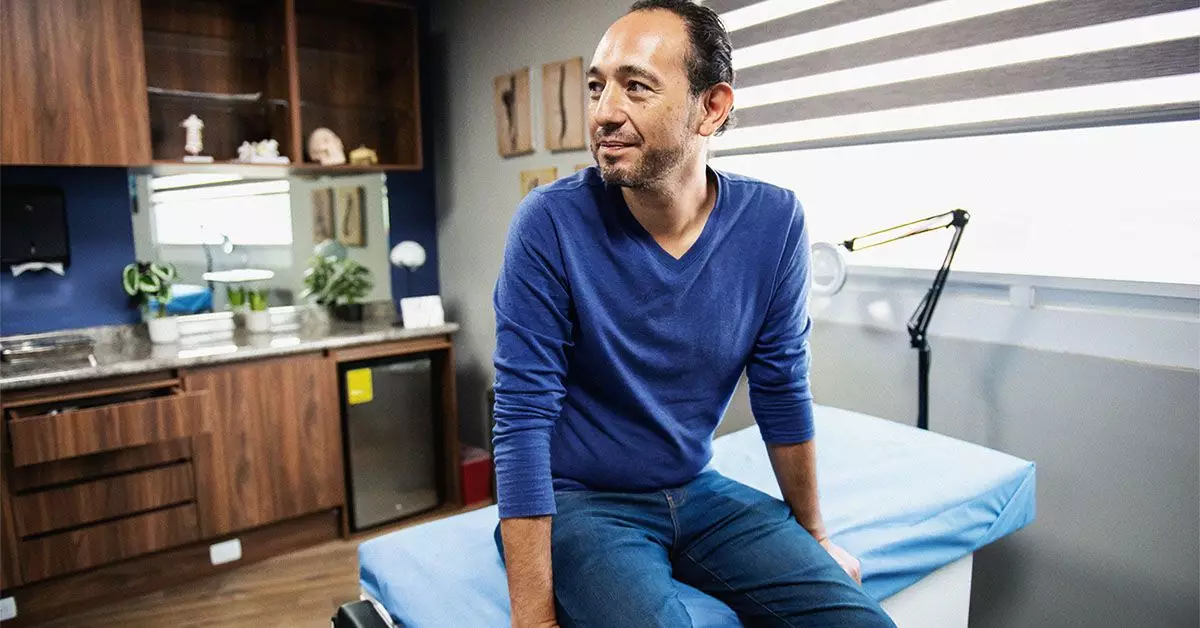Testosterone, primarily recognized as a male hormone, plays a pivotal role not only in male reproductive health but also in the dynamic and often concerning landscape of prostate cancer. Prostate cancer, one of the most prevalent cancers among men, has been closely tied to the effects of sexual hormones like testosterone. While testosterone is necessary for normal cellular functions, studies indicate that it can contribute to the proliferation of prostate cancer cells. The mechanism involves the hormone binding to specific proteins to stimulate genetic expressions that promote cellular growth. Alongside testosterone, another androgen known as dihydrotestosterone (DHT) also plays a significant role in this process.
Understanding this relationship is vital for predicting and managing prostate cancer progression. The alarming conclusion drawn by researchers shows that elevated testosterone levels may correlate with increased cancer cell growth. However, recent findings have challenged the traditional view of testosterone as merely a promoter of cancer progression, suggesting a more nuanced perspective that highlights the complexities of testosterone’s role in cancer biology.
In response to the potential contributions of testosterone to prostate cancer, hormone therapy has emerged as a cornerstone of treatment strategies. Specifically, androgen deprivation therapy (ADT) aims to lower androgen levels in the body and mitigate their effects on cancer cell growth. Doctors utilize several approaches to achieve this objective, including medications that inhibit the production of luteinizing hormone, which orchestrates testosterone production. Commonly employed agents are luteinizing hormone-releasing hormone (LHRH) agonists and antagonists, which target the testicular production of androgens.
In other instances, treatment may involve surgical options such as orchiectomy, which entails the removal of the testicles, thereby significantly decreasing testosterone production. For some patients, blocking androgen production in additional areas of the body is necessary. Drugs like abiraterone and ketoconazole have shown promise in reducing androgen levels not only from testicles but also from adrenal glands, effectively managing the disease.
To further disrupt the action of testosterone and other androgens within prostate cells, anti-androgens have been developed. These agents bind to androgen receptors, preventing androgens from eliciting their growth-stimulating effects. Such multi-faceted approaches underline the importance of hormone therapy as a complementary strategy alongside surgery or radiation therapy, aimed at optimizing treatment efficacy.
Given the intricate association between testosterone and prostate cancer, the advent of testosterone replacement therapy for individuals with low testosterone raises significant concerns. Does receiving testosterone therapy increase the risk of developing or exacerbating prostate cancer? Recent research suggests that testosterone replacement therapy does not heighten the risk of cancer recurrence, stirring up debates within the medical community about its utility.
Some proponents argue that men with low testosterone due to cancer-related treatments, such as chemotherapy, should not be excluded from receiving testosterone therapy. Rather, this therapy could significantly improve quality of life and counteract symptoms of hypogonadism without exacerbating prostate cancer risk.
However, caution is warranted. Several professionals advocate for careful monitoring of prostate health during testosterone therapy, calling for a balanced approach that weighs the potential benefits against the risks. The importance of comprehensive patient management cannot be overstated; healthcare providers must remain vigilant about the possibility of residual cancer cells remaining post-treatment.
Navigating the landscape of prostate cancer treatment requires a thorough understanding of the role hormones play. Testosterone, while instrumental in various bodily functions, presents a duality in its potential influence on prostate cancer. On one hand, it can promote the growth of cancer cells; on the other, recent studies indicate that testosterone therapy might not necessarily signify a heightened cancer risk.
As research continues to evolve, the concepts surrounding hormone therapy and testosterone replacement therapy will likely remain contentious. Clinicians must endeavor to provide personalized treatment strategies that consider individual patient risks, hormone profiles, and the nuances of their cancer development. By weighing evidence against clinical practice, we can find more refined pathways to improve outcomes for men grappling with prostate cancer while navigating the complexities of hormone therapies.

